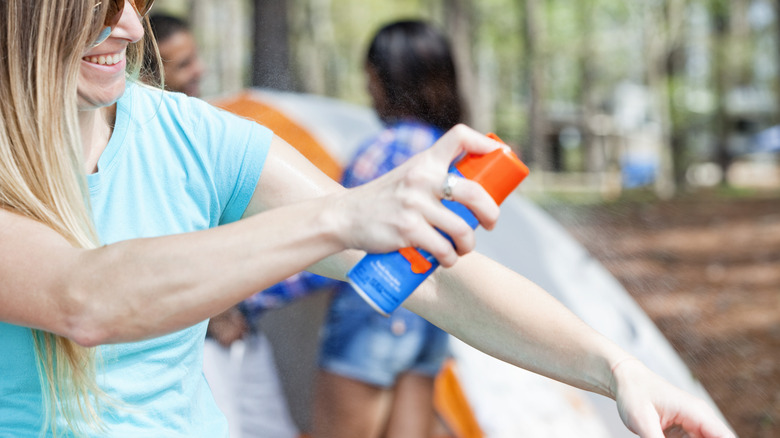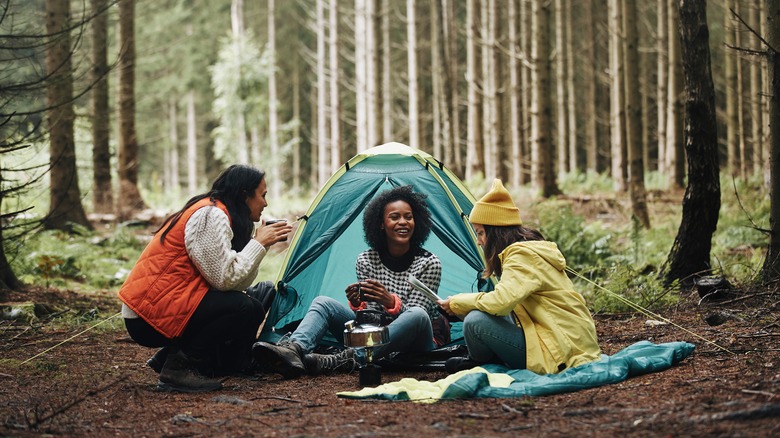The Dangerous Reason You May Want To Use Your Bug Spray Before Arriving At The Campsite
We may receive a commission on purchases made from links.
There's no better way to immerse yourself in the great outdoors than a camping trip: hiking the forest trails, fishing, and making a campfire under the stars. However, as relaxing as Mother Nature can be, pesky bugs and insects can kill the mood and even make you sick. According to the Centers for Disease Control and Prevention, the United States is home to 12 different species of mosquitoes known to spread viruses and parasites. Bug repellent is essential to protect yourself while camping, though it can become a safety hazard when used improperly — especially when combined with fire.
If you scan most bottles of commercial bug spray, you'll likely find the ingredients DEET or picaridin. These chemicals are highly flammable and not recommended for use near flames. If you spray yourself with one of these ingredients at a campsite, where people may be setting up bonfires or cooking on a gas grill, the repellent particles can travel, putting you and others at risk. To stay safe, use bug spray before you arrive at the campsite and move far away from fires when reapplying.
Bug sprays can pose a risk
If you live in an area with pests and creepy crawlies, you might use repellents and insecticides containing oil and petroleum formulations to deter these intruders. While these products are generally safe for the home, they pose a threat at campsites, especially due to the risk of combustion in certain conditions. As a result, you should never spray household or industrial pesticides on campgrounds or in your tent. However, if you aren't comfortable venturing into the wild without any protection, you might want to consider plant-based, DEET-free bug-repellent sprays.
When looking to banish bugs from your campsite, a few natural techniques can make all the difference. First, keep your tent and camping area clean by disposing of food scraps and promptly cleaning cooking tools and utensils after using them. This will not only keep bugs at bay but can also ward off raccoons and bears. You can create a bug-free barrier with natural, non-flammable insect repellents. Place battery-powered diffusers around your camping area to reduce mosquitos and other unwanted guests, or spray bug-busting scents such as citronella. You can also use fire to your advantage: Toss herbs like sage and rosemary into your campfire to repel bugs and insects naturally for hours.

